10 Feb 2020 update: Parasite has won the Oscar for Best Picture, making it the first non-English language film to bag the top prize in the award’s 92 years of history. The film also won Best Director, Best Original Screenplay and Best International Film.
My beloved writing professor Janice Cole used to tell her class that the best way to reach a broad audience through writing is to root stories in specificity. The idea is to pay attention to the particularities of space and place, to ferret out details that show readers the intricacies of a world and in so doing, enable us to imagine the lives of its people. The devil is in the details, as the famous saying goes because details are the bedrock of stories; details make a tale unique and define the contours of its telling.
Korean director Bong Joon-Ho is a details-driven filmmaker par excellence. In fact, his meticulousness is so legendary, Koreans combined his surname with the word ‘detail’ to coin his moniker, Bongtail. His recent Palme d’Or winner Parasite (2019) is a cinematic tour de force worthy of this moniker because the details that obsess Bong are steeped in the visual vocabulary of film. The spatial construction of each scene, the meticulous composition of each shot, the close observation of facial expressions and body language—all these elements are carefully calibrated in service of a story that is instantly recognisable to those of us living in Asia.
Set in present day South Korea, Parasite is a film about two nuclear families—a poor one, the Kims, and a rich one, the Parks—and the ways in which their lives are intertwined in a parasitic relationship, hence the film’s title.
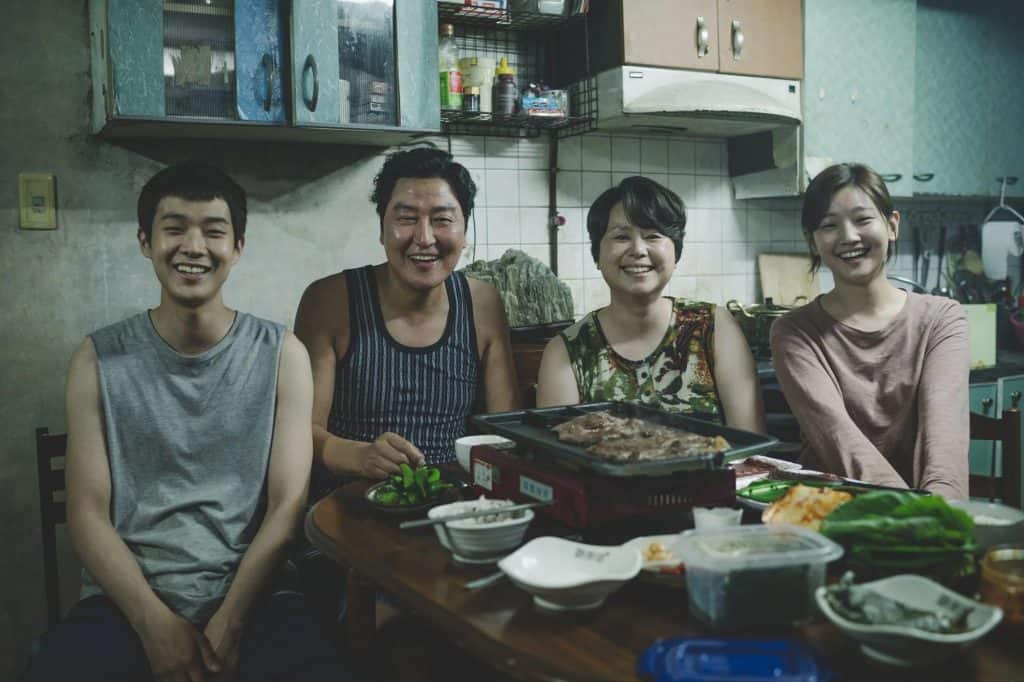
In the first act of the film, we witness how—one by one—every member of the Kim family devises dubious and guileful ways to secure gainful employment in the Park household. The Kim children, Ki-woo (Choi Woo-sik) and Ki-jung (Park So-dam) masterminded the first ‘infiltration’, faking their qualifications and getting hired as tutors for the Parks’ two children. Through a series of creative deceit, they got rid of the Parks’ driver and housekeeper, and helped install their parents into the new vacancies instead. The Parks are happy to have found replacements for the services that they depend on. Of course, they are also unknowingly bankrolling the Kim clan, who are pretending not to be related.
Bong’s hilarious and laudatory treatment of the crafty ways in which the Kims orchestrate their employment and embody their fake personas is black comedy at its best. But the family is not merely played for laughs. Bong’s painstaking attention to the details involved in each scam is designed to underscore the Kims’ resourcefulness, quick-wittedness, observational skills, improvisational abilities, and excellent teamwork.
One example that is both comedic and revelatory of the Kims’ camaraderie is when Mr Kim (Song Kang-ho) rehearses his role in a con involving peach fruits with his son Ki-woo. The former is so overly excited and gets so carried away with his acting that his son has to rein him in like an acting coach.
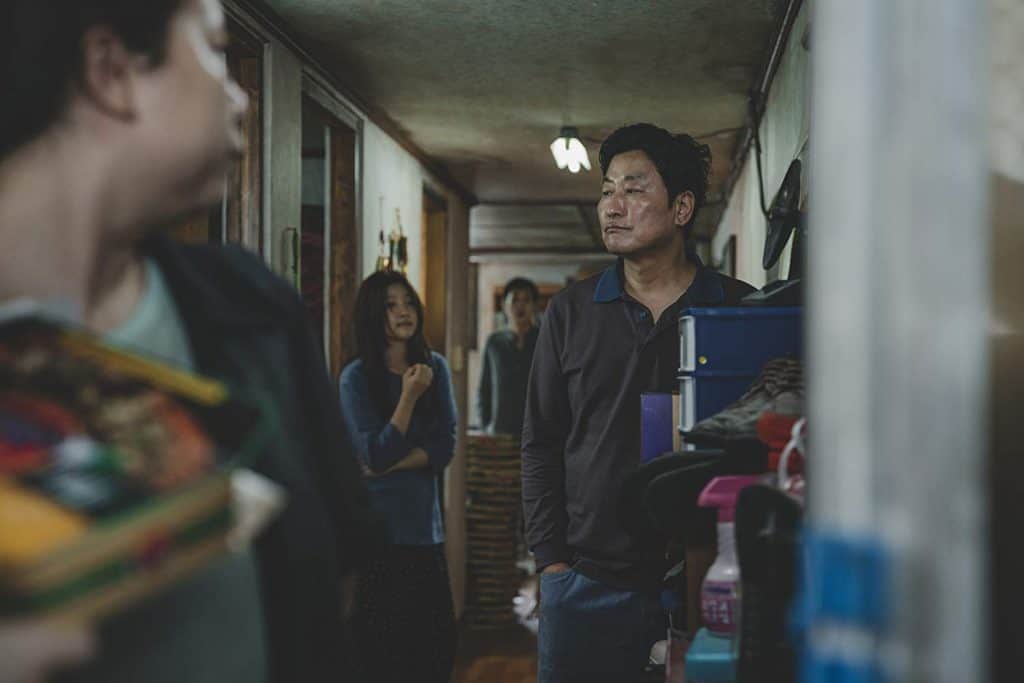
One cannot help but laugh in solidarity with the Kims as they plot and scheme; their ingenuity is impressive and their desperation is relatable. They may not be well off financially but they are a tight knit, jocular family and the way the story is told makes it easy to root for them.
By the same token, Bong portrays the Parks as a well-meaning, well-bred and well-to-do family, even if rather gullible. Mr Park (Lee Syun-kun), the CEO of an award-winning emerging technology company, is the sole breadwinner of his family and works long hours, while Mrs Park (Jo Yeo-jeong) is a full-time homemaker who fusses over her children and worries about their welfare, but generally depends on her maid to do the actual home-making.
They live in a bubble of their own making—Mr Park working with augmented and virtual reality tech further alludes to this—and are too cocooned in privilege to have any real sense of the world beyond the creature comforts afforded by their wealth. But this does not make them inherently bad people and Bong is careful never to depict them as such.

Contrary to what we might be led to expect, Parasite is not explicitly a film about the class conflict between the haves and the have-nots. During a BBQ feast to celebrate the windfall of jobs, Mr Kim openly acknowledges how the amount of money coming from the Park family into theirs is immense. He then offers a prayer of gratitude to wealthy patriarch Mr Park. Despite being aware of the great disparity of wealth and privilege between their families, Mr Kim expresses no envy or bitterness. He knows that without Mr Park, they would not be able to better their lot in life so if the latter is a benevolent employer, then what’s the harm in benefitting from his largesse?
Despite the negative connotations of the term ‘parasite’, relationships like the ones between the Kims and Parks are altogether commonplace in Asia and very much accepted as part of life. Very tellingly, actor Song Kang-ho says in an interview that he prefers not to use the term ‘parasite’, but instead sees the film as being about “symbiosis and coexistence“.
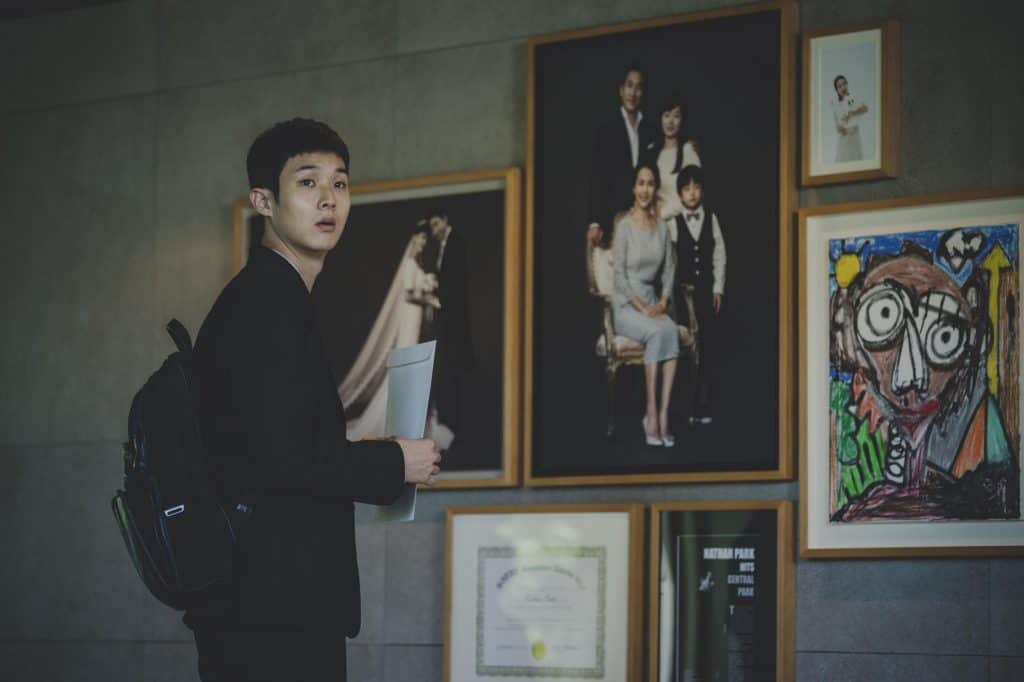
This film is an affirmation of this very real yet ordinary characteristic of contemporary Asian life. In Asian societies, the rich and the poor feed off of each other and have done so for thousands of years with few instances of outright rebellion. Even today, many middle and upper class Asian households have live-in maids and hired help, and chauffeurs are not uncommon among businessmen and CEOs. Tuition classes are the norm for Asian kids, with private home tutors the preserve of the well heeled. Within the domestic sphere, such employees share living and working spaces with their employers on a daily basis without question; they also sometimes have conversations that are intensely personal, which makes it tough for an employer’s private life not to be known to his or her domestic help.
Parasite is indisputably a Korean film set in South Korea that reflects the specific issues and concerns of its time. Yet the genius of Bong Joon-Ho stems from his ability to burrow so deep into the very core of Korean culture that he unearths muck so complex, it reeks of familiarity. By zooming in on the details of his culture, Bong has managed to share with his Asian viewers a set of lens we can now use to focus on our own.
True to its title, this is a film about a unique type of organism that cannot exist without a host, yet—scientifically speaking—parasites are not homogenous. According to the CDC in the US, there are three main classes of parasites with varying degrees of dependency on their hosts. In short, parasites are complex and not altogether alike. Similarly, in Bong’s film, there exist more parasites than we realise.
Read Part 2: A clash of parasites and what it means in Asia (major spoilers!)

C Nge makes it her mission to write about films that have the power to change the world: one heart, one mind at a time.
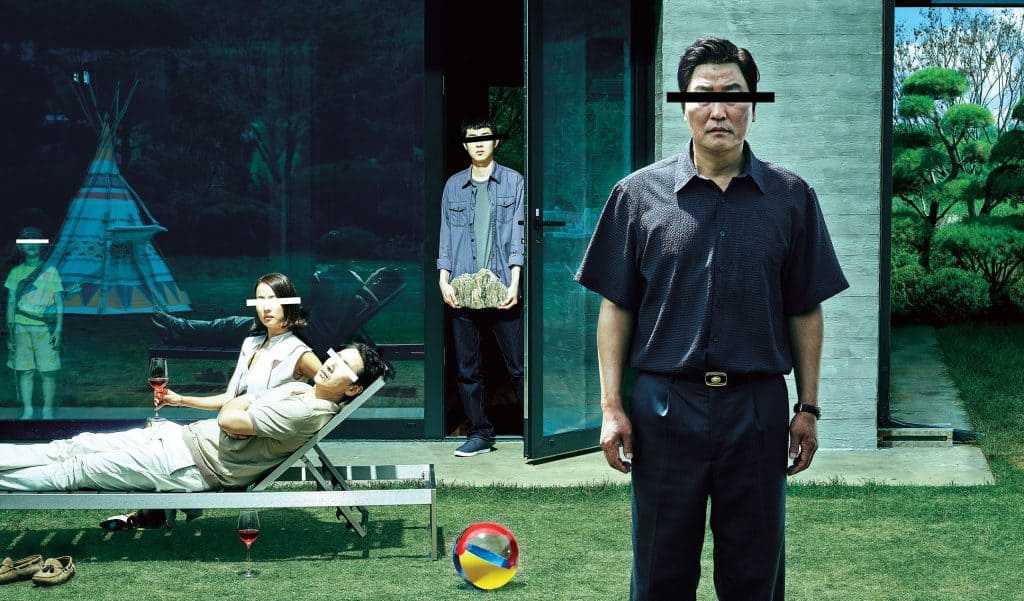
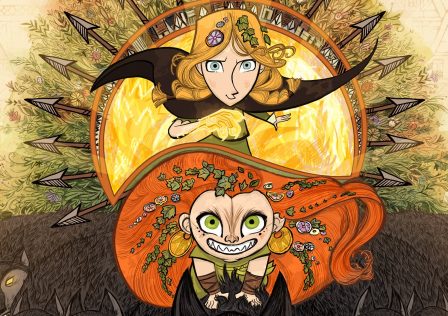

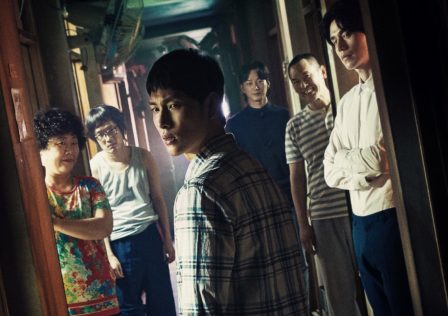
1 Comment
Caryn Yeo
Sep 17, 2019 5:49 pmnow you made me intrigued to watch Parasite